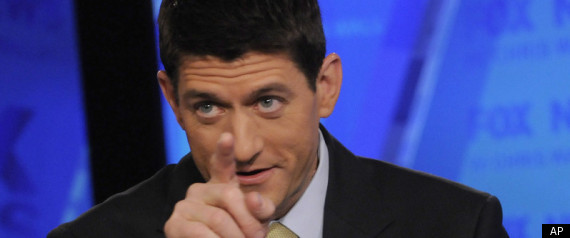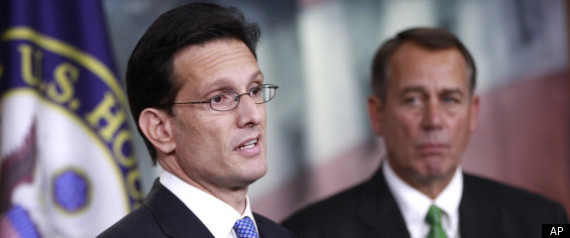
(Reported By www.Foxnews.com)
Bipartisan negotiators pushed toward a potential deal Tuesday to extend the payroll tax cut for the rest of the year, after Senate Democratic Leader Harry Reid opened the door to a House Republican plan that would approve the extension without offsetting the cost.
The string of gestures Tuesday appeared to grease the wheels for negotiations. By late afternoon, sources said lawmakers were nearing a potential agreement, which could address the payroll tax cut and other issues.
Lawmakers are looking at how to not only extend the payroll tax cut but also unemployment insurance and the so-called "doc fix" aimed at keeping Medicare doctors from being hit with a drastic reduction in their federal reimbursement rate. Sources said Tuesday that negotiators were looking at various ways, such as tweaking federal worker retirement benefits, to pay for those other two provisions. One source also said the plan would reduce the maximum duration of jobless aid from 99 weeks to 63 weeks in most states.
The payroll tax cut still would not be paid for under the framework being discussed. Though the fate of the talks is unclear, negotiators are hoping to include all three provisions in one bill on the floor Wednesday.
The movement comes after House Republicans first offered a standalone payroll tax cut extension with no offsets. The Republican proposal marked a sharp turnabout from the party's prior insistence that the 2-percentage-point Social Security tax cut be paid for in any extension. Democrats, in response, voiced little concern about the fiscal implications of another $100 billion tax cut extension.
Reid said he expected his chamber to approve such a plan, provided House Speaker John Boehner could convince enough members of his own party to go along with it. House Democratic Leader Nancy Pelosi earlier said her caucus could also support the proposed extension bill.
However, the White House and congressional Democrats continued to press Republicans to extend the two other provisions. Reid said he ideally wants all three issues to be resolved in one bill, a goal taken up Tuesday in the bipartisan talks.
The White House likewise pressed for the jobless benefits extension and "doc fix" to be included. White House Press Secretary Jay Carney said "all are important to the economy."
Pelosi also said earlier that failing to address those two other issues "jeopardizes both the ability of seniors to see their Medicare doctors and benefits for millions of Americans who lost their jobs." But she had no qualms about passing the tax cut by itself without offsets, saying the other two issues could be dealt with separately.
"Democrats have always demanded that we extend the payroll tax cut for 160 million Americans without paying for it," Pelosi said. "Paying for it" typically refers to raising taxes in other areas, which Republicans object to, or cutting spending programs, which Democrats object to.
In the Senate, senior Democratic aides told Fox News that Democrats are putting aside their push for a millionaire surtax now that Republicans have offered to extend the tax cut with no strings attached. One aide added, "To be sure, it will live to see another day."
The move to offer the payroll tax cut extension without any accompanying spending cuts or tax hikes puts some Republicans in a difficult spot. Senate Republican Leader Mitch McConnell just last week insisted that the extension be paid for. Asked about the plan on Tuesday, he said, "I can understand the frustration of House Republicans." He added, "I don't have a view on it right now."
Meanwhile, President Obama reprised the aggressive White House-led campaign from last year in pressuring Congress to extend all three of the provisions.
Obama said the public should not take anything for granted and should not "let up" until he signs the bill into law. The president, speaking at the White House, urged Congress to extend both the tax cut and unemployment aid "without drama." He called on Americans to apply pressure via Twitter and letters to Congress, suggesting a 2-point increase in the Social Security tax could damage the economy at a sensitive time.
"No ideological sideshows to gum up the works, no self-inflicted wounds. Just pass this middle-class tax cut, pass the extension of unemployment insurance," Obama said. "Do it before it's too late, and I will sign it right away."
The cut is scheduled to expire at the end of the month.
The back and forth marks the sequel to the frantic, last-minute posturing witnessed at the end of 2011, when the payroll tax cut was first set to expire. Congress in the end agreed to extend the cut for two months, with the aim of letting a bipartisan committee work out a yearlong extension. That extension was paid for with a fee assessed on everyone with a Fannie Mae or Freddie Mac housing loan.
GOP leaders, clearly hoping to avoid the thrashing they received in December when they ran out the clock on the tax cut, are offering a solution fraught with potential pitfalls, especially after Republicans derided Reid last week for indicating he had a "backup plan."
The Committee for a Responsible Federal Budget on Tuesday called the new plan "very troubling."
Rep. Scott Garrett, R-N.J., conceded that the offer to pass the cut without offsetting it "may hurt the GOP" considering its potential impact on deficits. But he said the offer shows Republicans are willing to compromise "when (Democrats) are not."
And he suggested the budgetary hit from the payroll tax cut pales in comparison to the imbalance found in the president's latest budget proposal.
The president's fiscal 2013 budget blueprint has complicated talks. While the president's team claims the budget will cut the deficit by $4 trillion over the next decade, Republicans charge the White House is employing gimmicks -- like counting savings from ending the wars in Iraq and Afghanistan.
And despite claims from the administration that the budgets are curbing the rate of growth, projections still show deficits increasing by $6.6 trillion over the next decade. The administration also has not met its prior pledge to cut the deficit in half by the end of Obama's first term.
Read more: http://www.foxnews.com/politics/2012/02/14/obama-calls-on-public-to-pressure-congress-on-payroll-tax-cut-extension/#ixzz1mOqbUhKe

